Why allowing people to make mistakes helps build a more inclusive culture
By Imogen Lees - 5 September 2025
5 Min Read
Diversity, equity and inclusion (DEI) is hard to measure. A lot of decisions are made based on what feels right at the time, which is a damn good place to start.
But making choices based on personal experience or emotion is when bias creeps in. So how can your business make thoughtful, data-based decisions when it comes to DEI policies and priorities? When there’s so much you could do, if only you had the time?
Like any good product manager will tell you, user research is the best place to start.
To get a baseline of our people’s understanding of DEI at Planes, we created a survey covering topics from psychological safety to feedback culture. The findings helped us to understand that an open culture, based on honest feedback and data, can really support a DEI mission. Here's some other stuff we learned and how we're putting it to good DEI use.
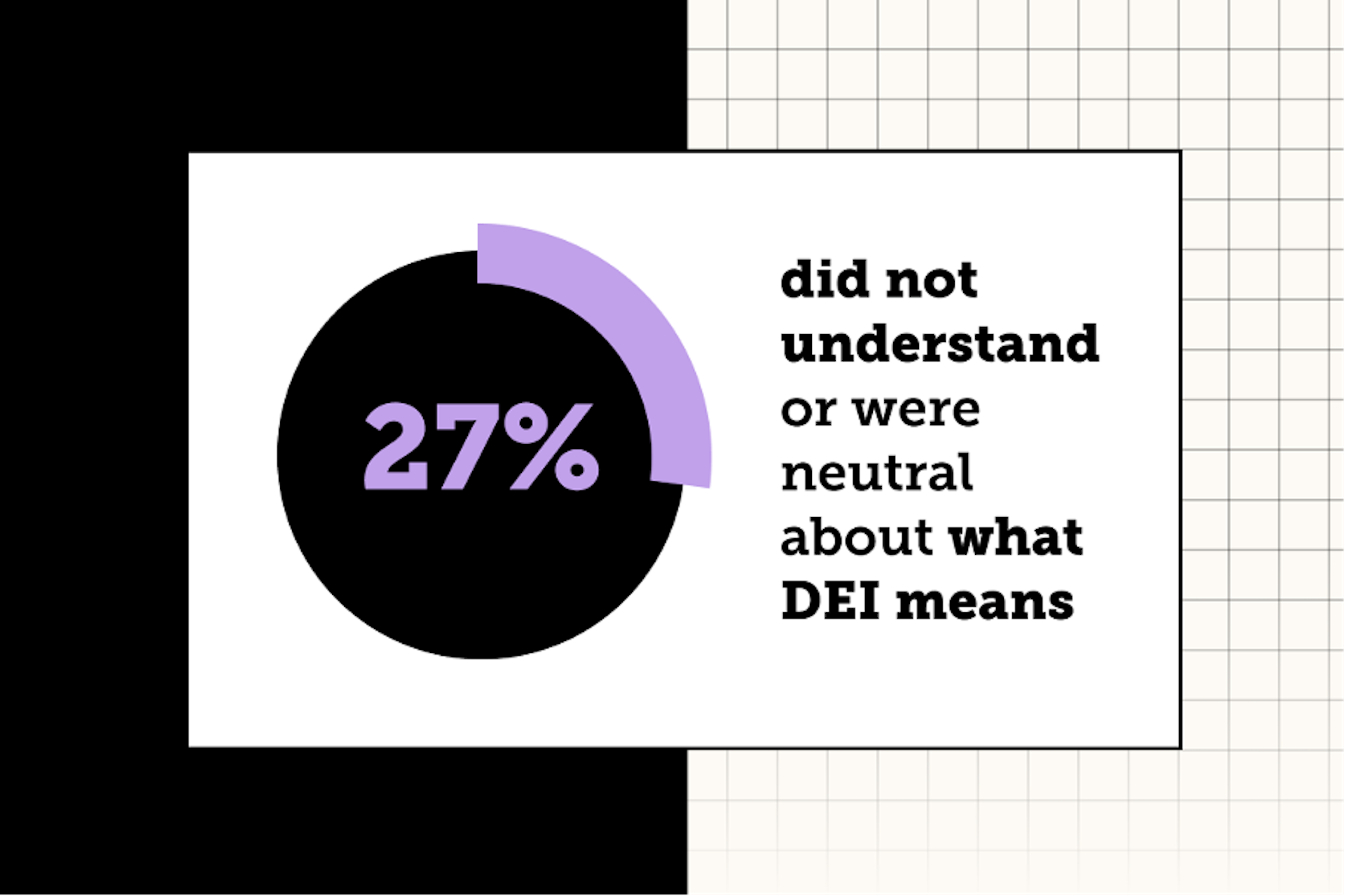
Define what DEI means for your business
Given that DEI can mean different things to different people, it didn’t come as a surprise that 27% of the team weren’t sure how to define it. We’re just at the start of our journey to changing that, starting with the introduction of five pillars by which we define DEI at Planes. These are; the level of understanding in the team, our work (inclusive design practices), the makeup of team and hiring, operating as a team (culture) and external impact (e.g. partnerships). We’ll be sharing more on this soon.
Whilst we were disappointed that 42% of the team didn’t see DEI as a key priority at Planes, we weren’t entirely shocked. Because as a small team, DEI hasn’t always been top of the agenda. Until now.
DEI work can often stay quite hidden, which probably has something to do with the sensitiveness of the content and people’s reluctance to get things wrong. But that’s precisely why sharing what the business is up to – internally and externally – is so important.
We’re committed to publishing regular blogs, adding a ‘DEI’ section to our company updates, and opening up discussions to get the wider team involved in the decision making process. Everyone is now a DEI stakeholder at Planes.
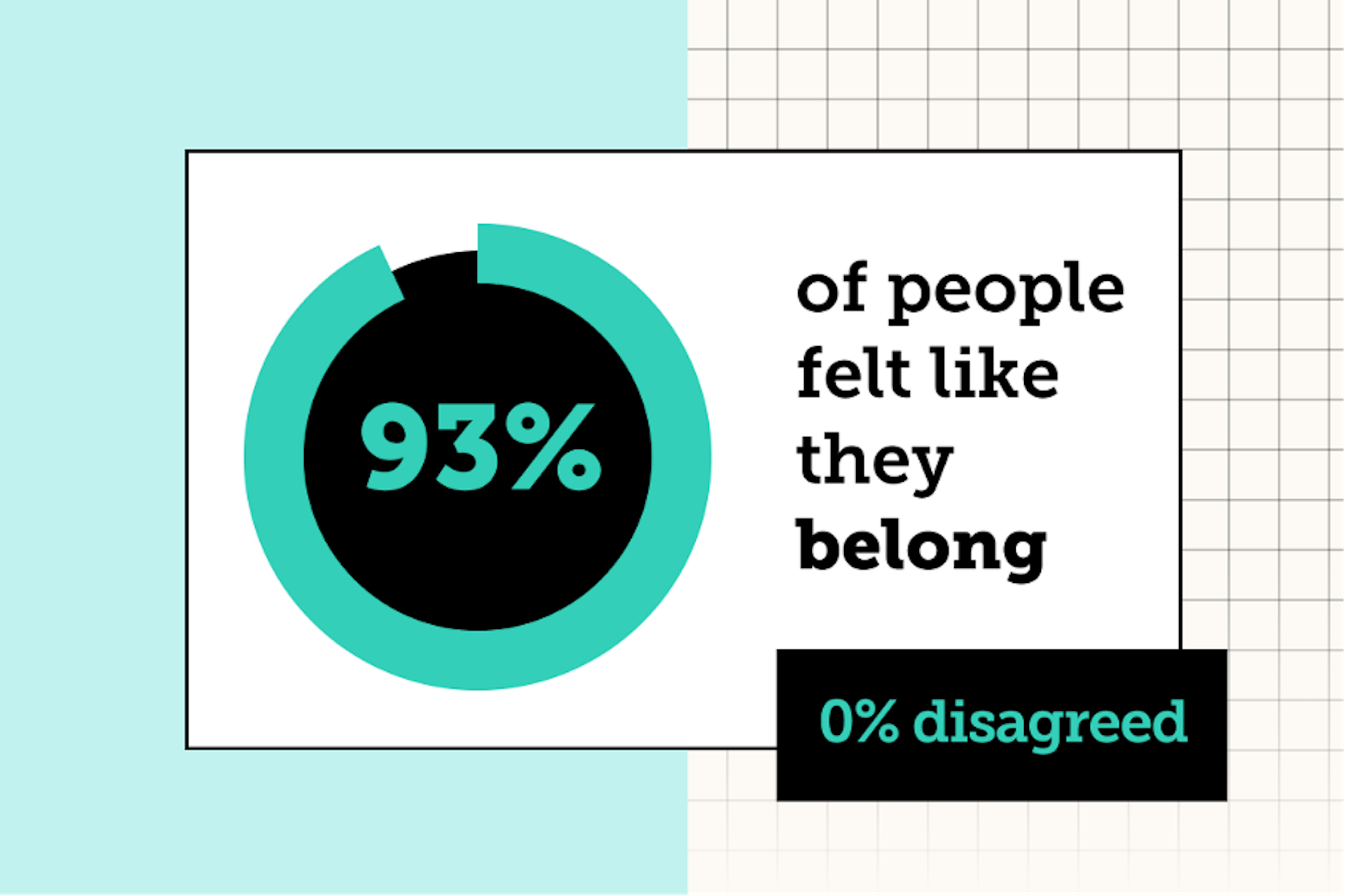
Create a space where everyone belongs
We’re pretty happy that 93% said they feel like they belong at Planes, and 100% agreed they felt recognised, heard and respected. So what are we doing that has inspired this feeling of belonging?
Each team meets regularly to share learnings and make bets (our version of KPIs) to improve our practices as a whole. We also run quarterly away days where everyone contributes to our company planning and feeds back on our processes and framework. And our employee benefits are designed to make everyone feel like they can bring their whole self to work, whether that’s through flexible working and holiday options, enhanced parental leave or our partnership with mental health support Spill.
While our team isn’t currently as diverse as we’d like it to be, 85% believe people with different backgrounds can succeed at Planes. Feelings of belonging are easier to cultivate in a small team, and we want to make sure we’re already making space for people with different needs and experiences. That way, we’re ready to welcome them when they join. As such, this is definitely something we’ll watch out for and track as we grow.
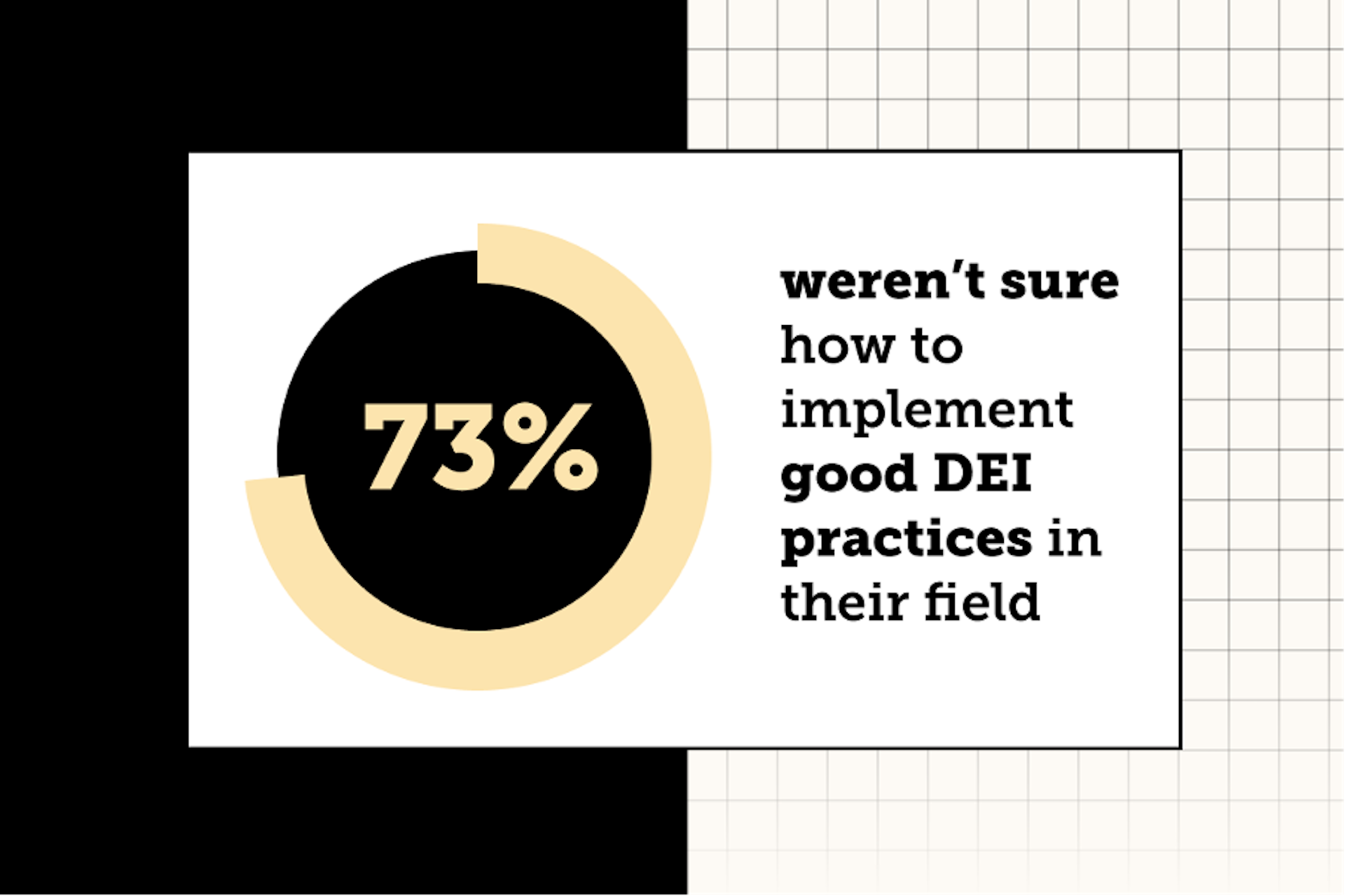
Bridge gaps in practical knowledge
The link between DEI and our product work isn’t immediately obvious. Turns out, this is probably our most unanimous area for growth, as 73% don’t understand or are neutral about how to implement good DEI practices in their field. But inclusive design practices are incredibly important because this is the area we can have the most impact – through our work with our clients.
We’ve already started tackling this with inclusive design training for all the team and bringing in speakers for our ‘What the Fika?’ learning breaks. Accessibility testing is a given on all our designs, and we’re getting better at interrupting the product development process to prioritise more inclusive practices, like using gender-neutral terms on all forms as standard.
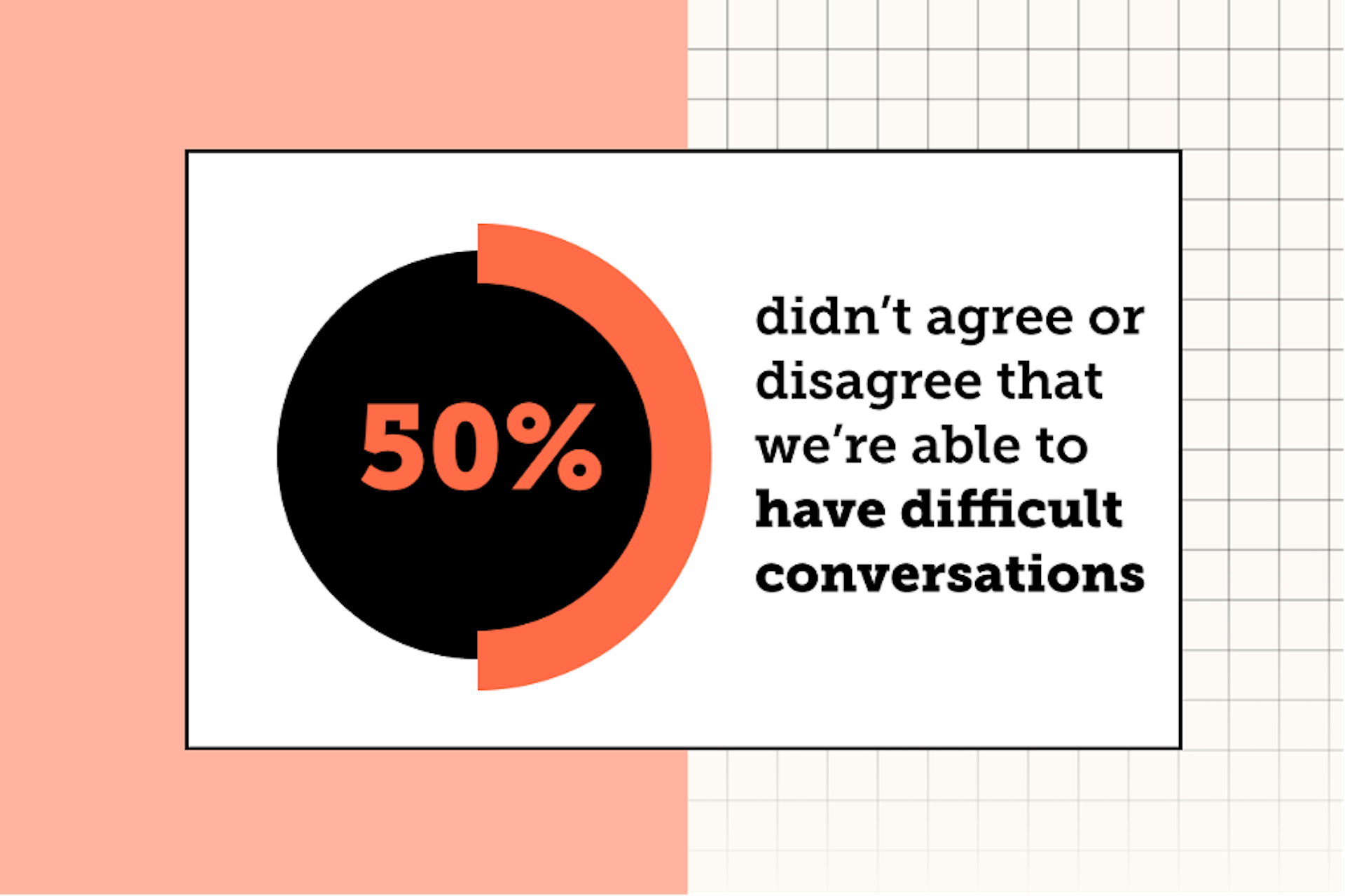
Bring different ideas to the table
Our survey showed that 50% aren’t comfortable having difficult discussions as a team. This didn’t come as much of a surprise because we haven’t had many of those tricky conversations yet. One respondent shared that a fair debate could be challenging because it feels like the vast majority agree on the company’s values and concerns. This highlighted the need to make more space for our differences. We’re allowed (and should be encouraged) to disagree because that’s how we learn and grow.
But you can’t force people to have difficult conversations, so how can we tackle this? We’ve introduced diversity and inclusion training as well as talks from a range of people sharing personal stories around global issues such as the refugee crisis and homelessness. And we’ve already noticed that when external speakers open up about their experiences, others follow.
Having hired our first People Manager last year, we’re starting to formalise our processes to look after our people. From more inclusive hiring practices to facilitating deeper discussions around our values and priorities, we want to welcome as many voices and experiences to the table as we possibly can.
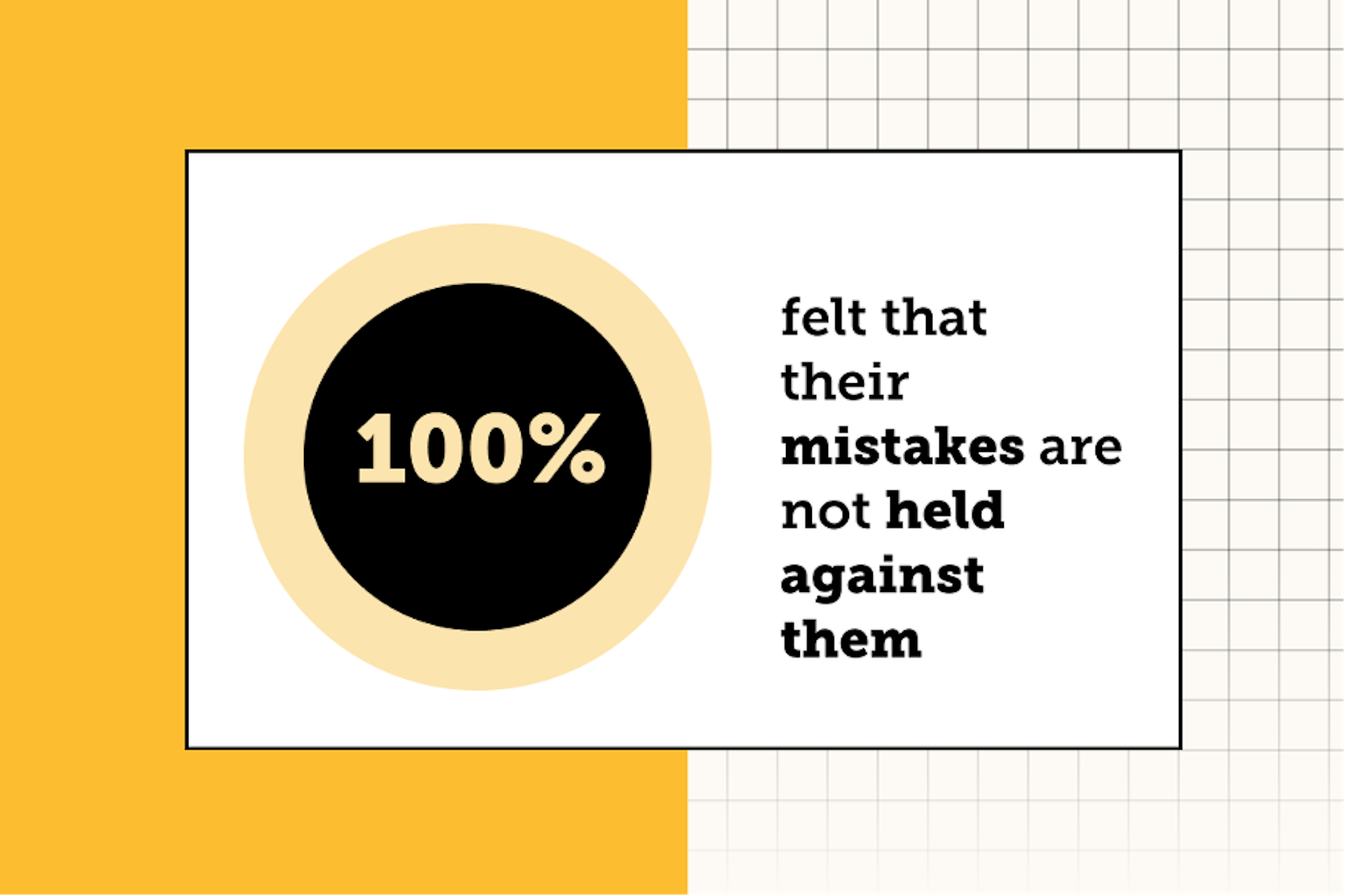
Let existing ways of working support your inclusive intentions
If there’s one thing that drives us at Planes, it’s being unafraid to fail. We’re encouraged to test new ideas, try new approaches, and learn from our mistakes. Turns out, that’s a great foundation to build an inclusive culture on, too, with 100% of the team feeling that a mistake would never be unfairly held against them.
Similarly, our flat structure and transparent approach, open discussions about company revenue and goals, and group participation in company-wide decisions help build a more inclusive culture. As a result, 93% of the team feel included in decisions that affect them, and 100% feel the founders are approachable.
Making mistakes is part of the process. We want to make sure people aren’t afraid to say the wrong thing because that holds people back from learning. And there’s nowhere that’s more relevant than when it comes to having tricky conversations about race, bias, systemic oppression, patriarchy, White supremacy, belonging and how to begin building for a more equitable future. That’s why we’re open about our DEI journey and the areas we need to grow.
We’ll do another survey in the next 3-6 months to see how we’re getting on and share our learnings. In the meantime, if you want to use our survey as a template, please get in touch with the DEI team (Rachel, Sophie, Ryan and Imogen) via hello@planes.agency.